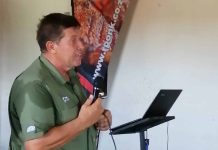Estimated reading time: 6 minutes
Resilience is the name of the game, and also the theme of the 2024 LRF Stockman School: Be a resilient stockman.
The first session of the annual Stockman School on Wednesday morning, sponsored by Molatek, focussed on resilience from a broader point of view. John Steenhuisen, minister of agriculture, delivered the opening speech via video and his message was clear: the Department of Agriculture is on the farmer’s side and will do everything possible to support farmers. Referring to weather-related difficulties faced by farmers, from drought to veld fires to snow, he told delegates that his department is currently looking at ways of facilitating affordable insurance products.
He highlighted several key focus areas the department is currently addressing, all aimed at improving the quality and quantity of South African agricultural products. At the centre lies the improvement of biosecurity, and closely linked to it, an effective traceability system (or what he refers to as a track and trace system). A good traceability system, he said, will not only enable effective disease control, but also aid in curbing stock theft.
He pointed out that the Government of National Unity or GNU offers a new start and that the agricultural sector is excellently positioned to help grow the economy. The role of the department, he said, is to create an environment for the industry in which to flourish, which in turn will spill over to the broader economy.
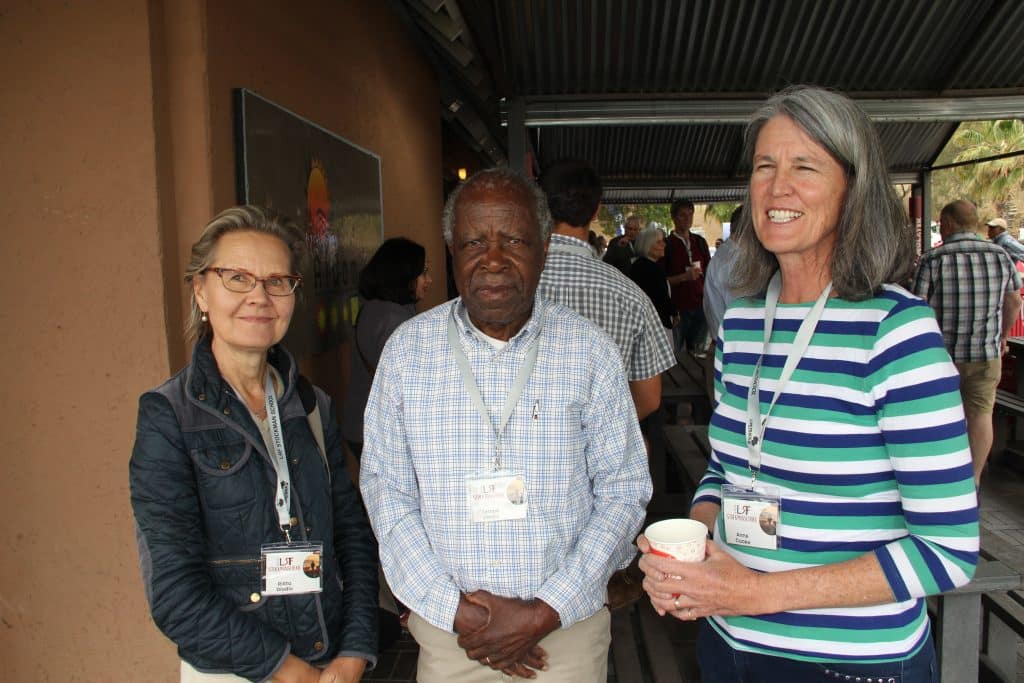

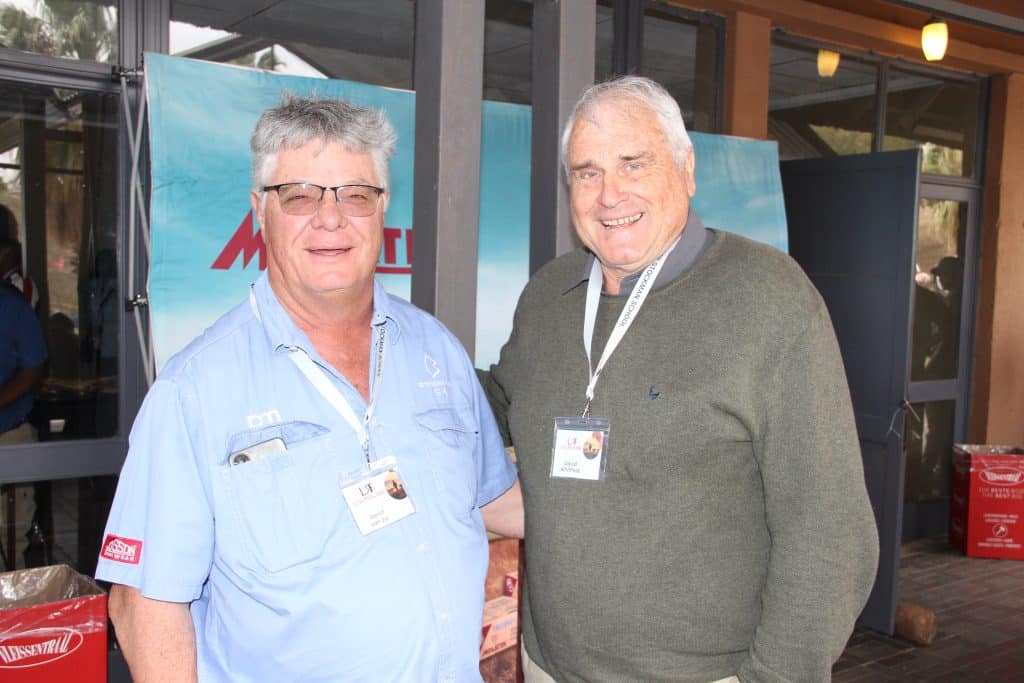
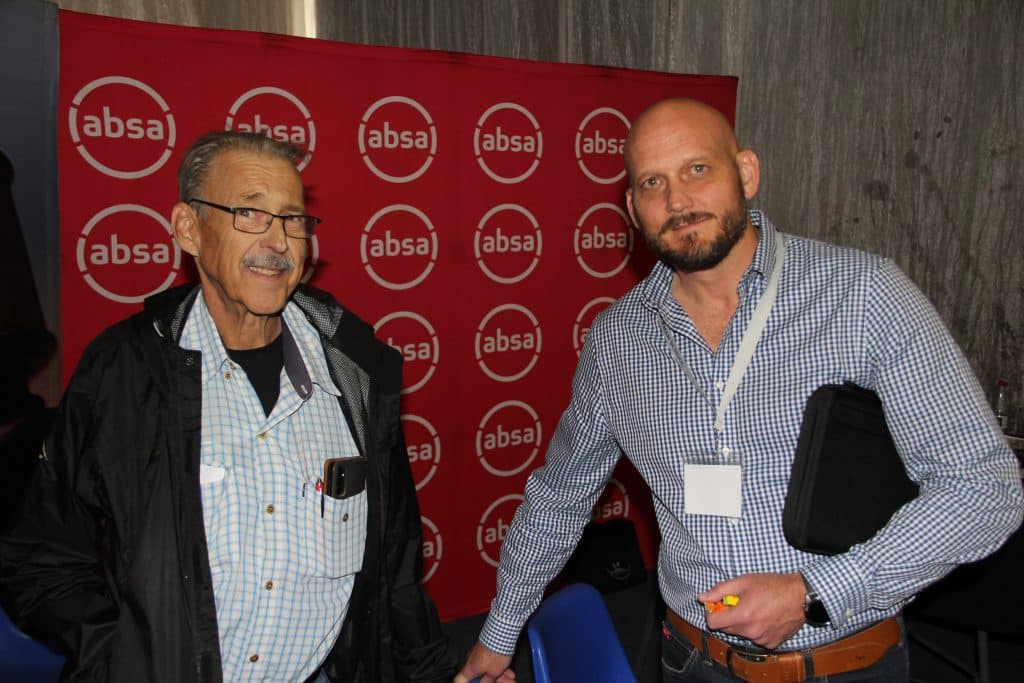
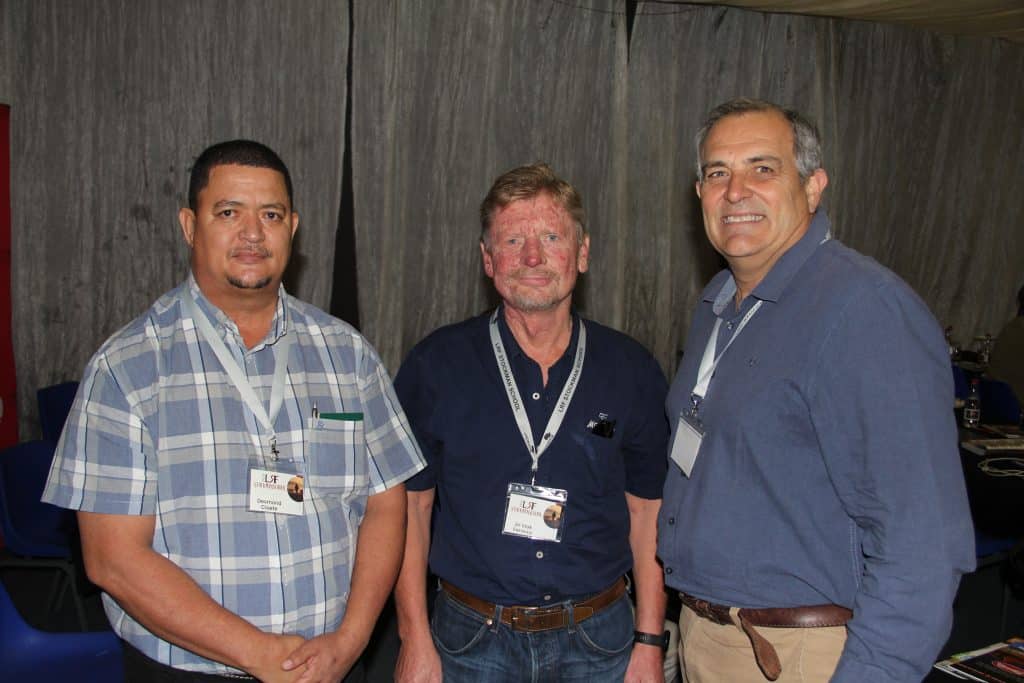
Political dynamics and resilience
The next speaker was Prof Theo Venter, professor of practice at the College of Business and Economics of the University of Johannesburg (UJ). Venter highlighted the political dynamics of the GNU. He used the acronym VUCA to describe the ‘new normal’. VUCA stands for volatility, uncertainty, complexity and ambiguity.
In a volatile world, he said to the 200 Stockman School delegates, resilience is an increasingly critical prerequisite. Ambiguity arises when there are different interpretations of the same phenomenon. He used the term “reframing” to refer to the ability (and imperative) of looking at the future differently.
Where a company is going, he said in reference to the book Competing for the Future by Gary Hamel and CK Prahalad, is more important than where it came from. This vision should filter down from top management, who should have a clear vision of how a business may be different ten years from now.
Referring to future political dynamics, he said that success would cause participating parties to gravitate towards each other. In contrast, however, a failed GNU is a huge risk for both the ANC and the DA. The local elections in 2026 will be a major challenge. Will the GNU culture filter through to local and metro politics?

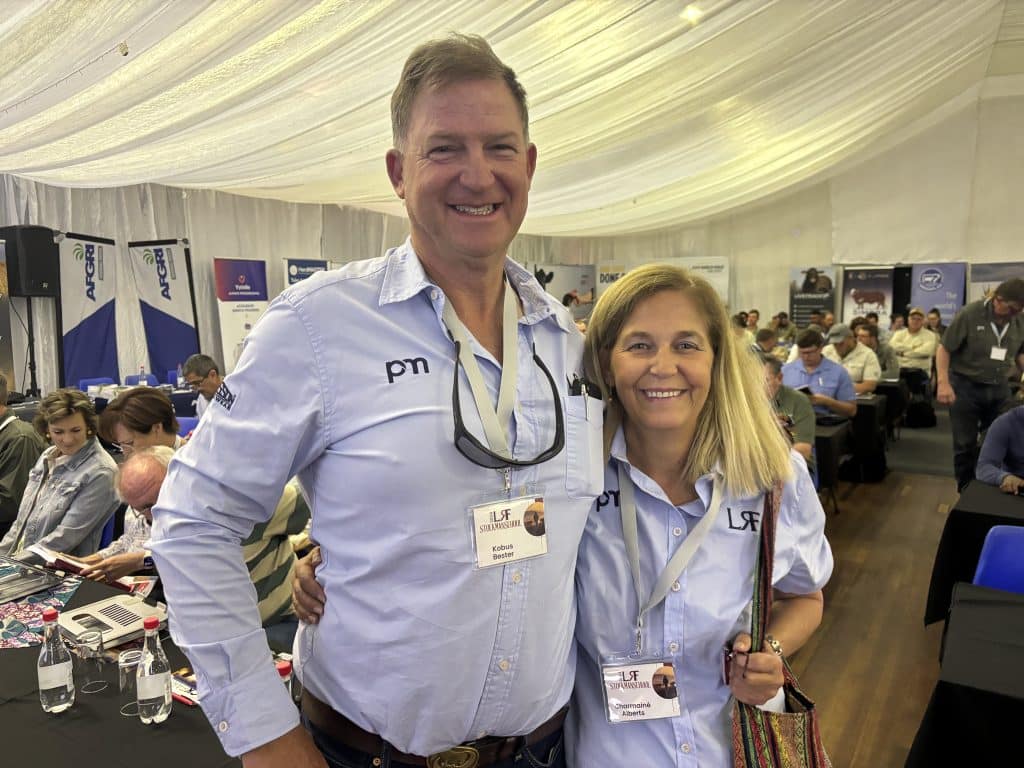
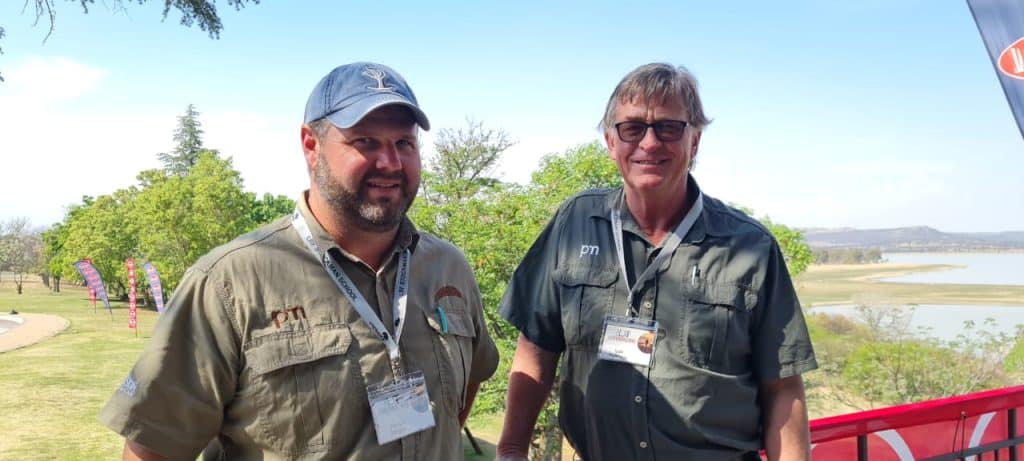
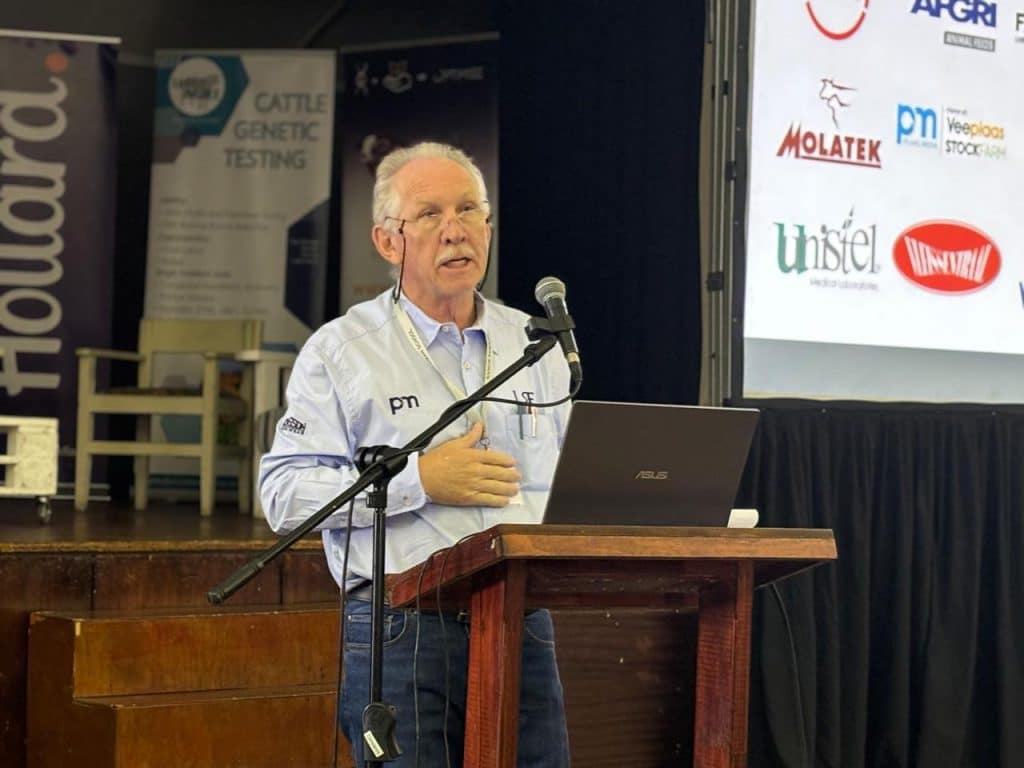
Top right: LRF director, Kobus Bester, with Charmainé Alberts, who is involved in organising the annual Stockman School.
Bottom left: Jamie Bergen, Simmentaler SA breed director, and Izak Hofmeyr, editor of Stockfarm and Plaas Media’s regional manager in KwaZulu-Natal/Eastern Free State.
Bottom right: Johan Styger during his opening address on the first day of the Stockman School.
Stockman School panel addresses industry resilience
The session ended with a panel discussion on resilience in the red meat industry. Prof Norman Maiwashe, general manager of the ARC–Animal Production Campus in Irene, led the discussion. The rest of the panellists were Dewald Olivier, CEO of Red Meat Industry Services (RMIS), Dr Frikkie Maré, CEO of the Red Meat Producers’ Organisation (RPO), Prof Frikkie Neser, head of the Department of Animal Science at the University of the Free State, Dr Gerhard van der Burgh, project coordinator at the Bureau for Food and Agricultural Policy (BFAP), and Dr Johnny van der Merwe, manager director of AMT and Agri Optimum.
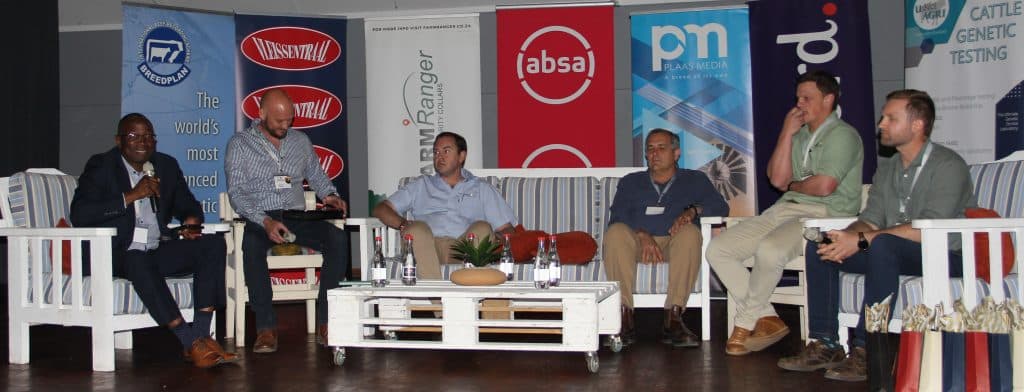
The panellists concluded that the pillars on which growth for the red meat sector depends, are animal health, product quality, inclusive growth, competitiveness and partnerships, especially with government. Although the price outlook remains flat, the key to resilience remains productivity. It is also important that South African products are re-branded.
A grading system where producers are paid for quality, they emphasised, should be a priority. – Izak Hofmeyr, Plaas Media

